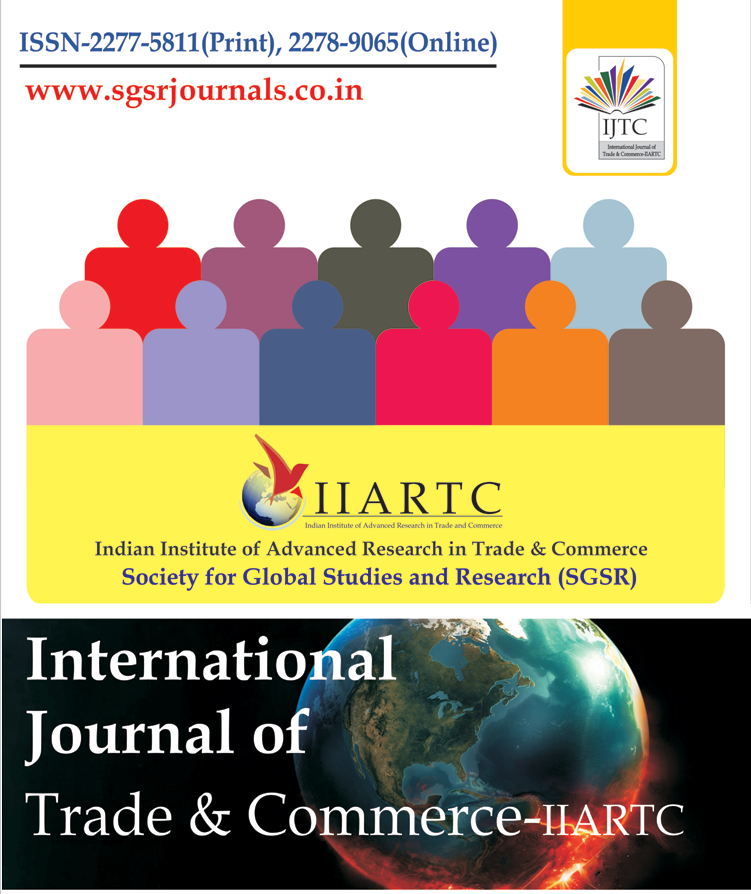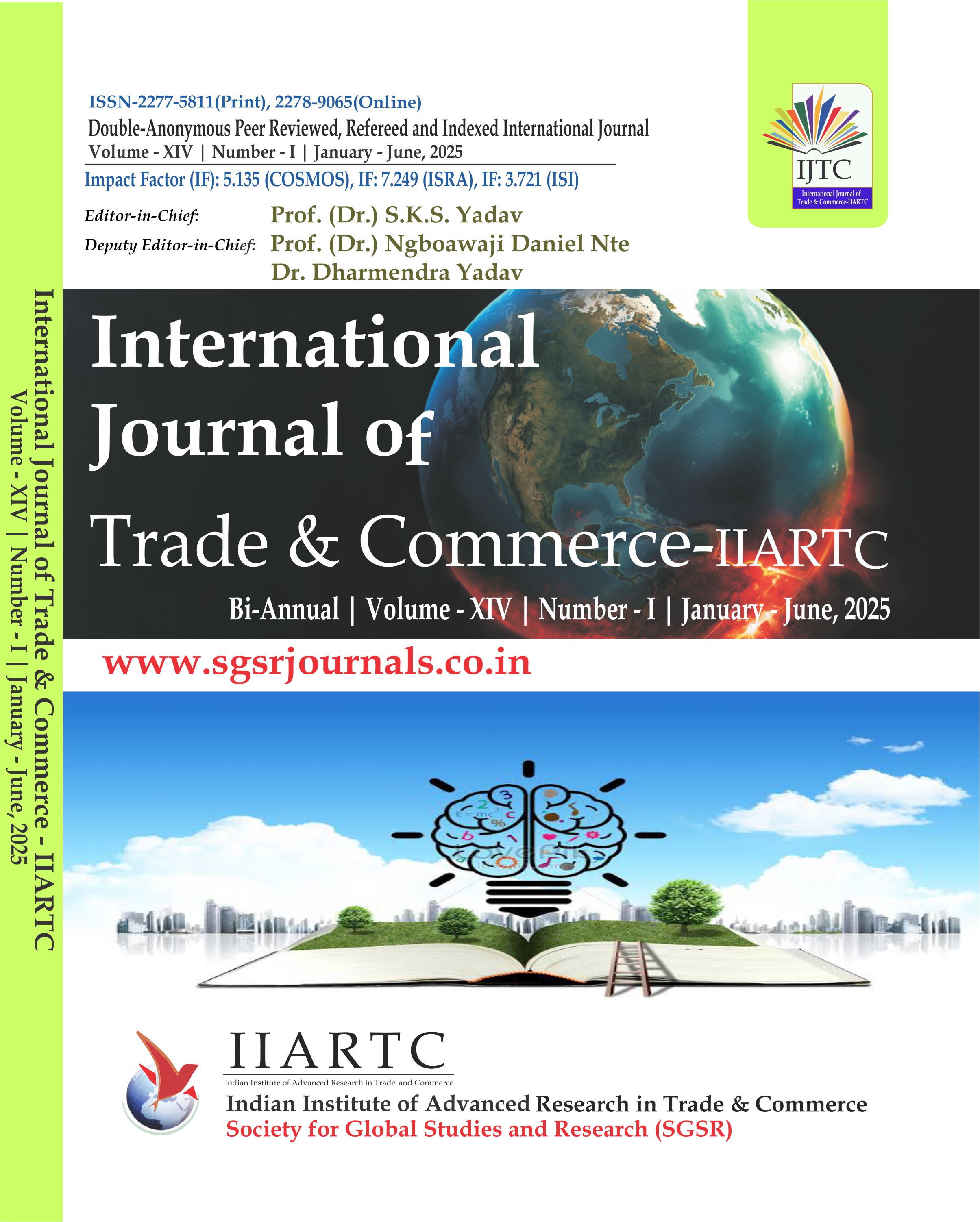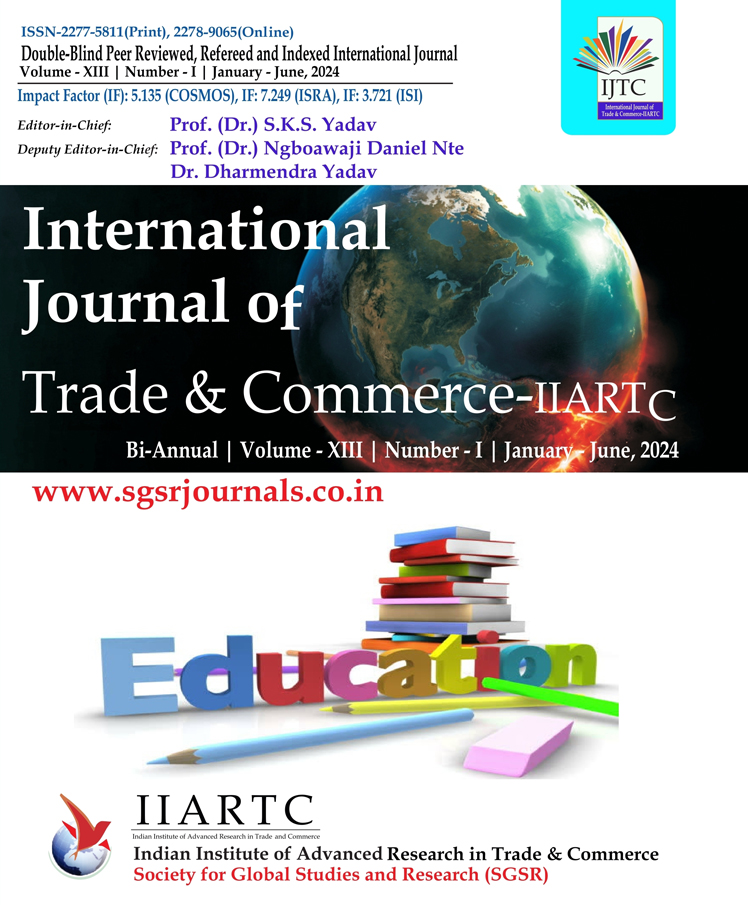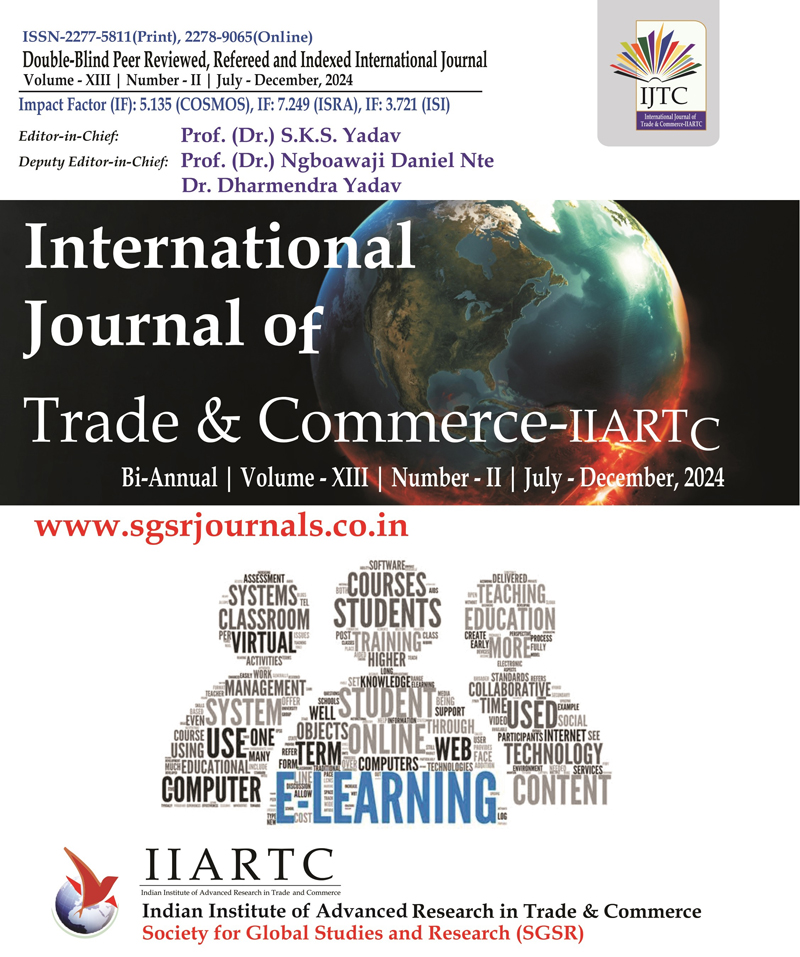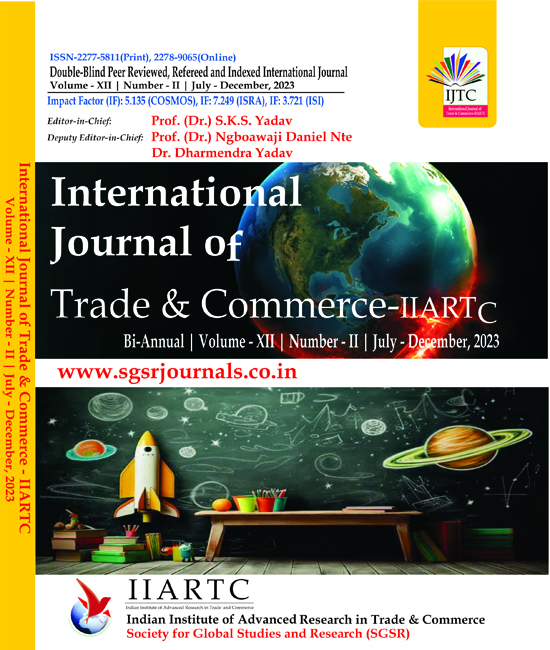
Commerce, Meerut College, Meerut

Dhaka School of Economics, Dhaka School of Economics

Faculty of Business Studies, Jagannath University Dhaka

,

Faculty of Technical Studies, Dt Kliment Ohridski Bitola Macedonea

Faculty of Management & Social Sciences, College of Management & Social Sciences Novena University
Abstract: Gender-based violence (GBV) is a pervasive global issue that affects individuals across all demographics, but disproportionately impacts women and girls. This abstract examines the multifaceted nature of GBV, encompassing various forms such as physical, sexual, psychological, and economic violence. Using a socio-ecological framework, it explores the complex interplay of individual, relational, community, and societal factors that contribute to the perpetuation of GBV. Furthermore, the abstract delves into the profound consequences of GBV on individuals and society at large. Beyond the immediate physical and psychological trauma experienced by survivors, GBV perpetuates cycles of poverty, hinders economic development, and undermines social cohesion. It exacerbates existing inequalities and impedes progress towards gender equality and women's empowerment. Drawing on empirical evidence and theoretical frameworks, this paper underscores the urgent need for comprehensive, multi-sectoral approaches to address GBV effectively. Such approaches should encompass prevention, intervention, and response strategies that engage diverse stakeholders, including governments, civil society organizations, communities, and individuals. Moreover, efforts to combat GBV must be underpinned by a commitment to challenging harmful gender norms, promoting human rights, and fostering gender-equitable societies. By shedding light on the pervasive nature and far-reaching impacts of GBV, this abstract seeks to inform policy, advocacy, and programming efforts aimed at eradicating this grave violation of human rights and fostering a more just and equitable society for all.
Abstract: Workplace diversity and inclusion (D&I) have become critical drivers of innovation, employee well-being, and organizational performance. The success of D&I efforts, however, depends significantly on the dominant organizational culture, which influences employee attitudes, behaviors, and inclusivity-related policies. This research explores the complex relationship between organizational culture and workplace diversity and inclusion, investigating how cultural values, leadership, and HR policies affect the success of diversity efforts. Based on a comprehensive literature review, case studies, and empirical studies, this research emphasizes the most important aspects of an inclusive organizational culture, including leadership commitment, psychological safety, fair hiring practices, and open communication. It also examines typical obstacles to inclusivity, such as unconscious biases, resistance to change, and structural disparities in organizations. The study also examines the contribution of transformational leadership and corporate social responsibility (CSR) in fostering a positive cultural change towards inclusivity. Findings indicate that organizations with a robust, inclusive culture have more engaged employees, better team collaboration, and better organizational reputation. In contrast, firms that do not embed diversity and inclusion into their cultural narrative stand to see greater turnover, intra-workplace conflict, and diminished innovation. The research concludes by offering strategic recommendations to organizations on how to create and maintain a culture that proactively supports diversity and inclusion through leadership commitment, customized training programs, and inclusive policy making.
Abstract: Artificial Intelligence (AI) has become increasingly central to both economic progress and modern business practices. While much public discussion has centered on the societal and ethical dimensions of AI—particularly in relation to data privacy and human rights—there has been comparatively less attention on how AI is transforming traditional workplace dynamics, especially in the area of occupational health and safety. Although concerns about human rights and gig economy conditions are well-documented, the potential implications of AI for day-to-day worker safety remain underexplored. This paper seeks to fill that gap by introducing a conceptual framework for an AI Work Health and Safety (WHS) Scorecard. This tool is designed to help identify and manage workplace risks linked to AI deployment. Drawing from a qualitative, practice-oriented research project involving organizations actively implementing AI, the study outlines a set of health and safety risks derived from aligning Australia’s AI Ethics Principles and Principles of Good Work Design with the AI Canvas—a tool traditionally used to evaluate AI’s commercial value. The study’s key innovation lies in a newly developed matrix that maps known and anticipated WHS and ethical risks across each stage of AI adoption, offering a structured approach to evaluating AI’s workplace impact.
Abstract: Islamic banking is reshaping Bangladesh’s financial landscape by offering a Sharia-compliant alternative to conventional banking, particularly through innovative community-driven micro-savings and micro-investment models. This qualitative study analyzes First Security Islami Bank Limited (FSIBL), Bangladesh’s first full-fledged Islamic bank (est. 1999), to draw insights for India’s emerging Islamic banking sector. FSIBL’s success in applying profit-loss sharing (PLS) models—such as Mudarabah-based micro-savings pools converted into agricultural investments and Bai-mode financing for SMEs—alongside mobile banking-enabled societal banking initiatives, demonstrates how Islamic finance can bridge financial inclusion gaps in developing economies. The bank’s CSR-linked community investment programs, which transform small deposits into Waqf-funded local projects, offer a replicable template for India. However, recent governance lapses and liquidity crunches highlight systemic risks in scaling these models without robust safeguards. The study addresses two questions: (1) How does FSIBL’s integration of microfinance with Islamic principles validate its viability in emerging markets? (2) What lessons can India adopt to leverage societal banking wings for grassroots capital formation while avoiding governance pitfalls? Findings reveal that participatory micro-investment frameworks require three pillars: strong Sharia governance (e.g., community oversight committees), depositor protection mechanisms (e.g., taka ful-backed micro-savings), and adaptive asset-liability management (e.g., blockchain-tracked PLS ventures). By examining FSIBL’s journey, the paper proposes actionable strategies for India to harness Islamic banking’s dual social-commercial mandate, advocating for regulatory sandboxes to pilot community savings-to-investment chains and tax-neutrality for micro-investment products. The study concludes that India’s vast SHG networks and digital infrastructure position it to outperform Bangladesh’s model—if integrated with ethical resilience and operational transparency.
Abstract: Eastern Region of India (ERI) is the inclusion of four states namely – Bihar, Jharkhand, Odisha, and West Bengal. It has 171040 villages with a vast quantity of rural population. It also includes several tribes in various areas. ERI also has forest resource with several products namely - fuelwood, fodder, edible nuts, herbs, flowers, seeds, leaves, bark, roots, tubers, lichen, honey etc. It has tradition of non-veg and veg cuisines. It is known for hand woven clothes. Jewellery, furniture, baskets, etc. handicraft products have attraction for people in rest of India. ERI is sea coast rich region. It owns much from marine activities. It has thousands of villages. For the socio-economic development of RURAL ERI, 8 Regional Rural Banks are established. These RRBs are the joint venture of central government, state government and scheduled banks. Main aim of these RRBs is rural development. These RRBs are shaping their aim with commitment. In the ERI, deposits, advances of RRBs are increasing continuously, NPA is lessening. RRBs in ERI are earning profit. ERI-RRBs are trying best to achieve the aim. This fact is certified by balance sheets, annual reports, and documents of RRBs, NABARD, RBI and State Governments. Primary cum secondary data and tools are used. Research provides useful conclusion and suggestions for the insight of policy makers. ERI scenario will change completely if conclusions and suggestions of research are implemented according to spirit.
Abstract: The COVID-19 pandemic accelerated digital adoption across sectors, rapidly restructuring Indian e-commerce. AI is a critical enabler of operational efficiency-from planning supply chains to automating customer support. The study attempts to understand post-COVID transformations in AI-related employment trends in various e-commerce subsectors in India. While AI threatens entry-level, routine applications, it creates a demand for professional jobs further involving AI development, data science, and digital operations. The study, thus, employs mixed methods, using secondary data sets and qualitative case studies, to comprehend the sectoral landscape of AI impacts on employment. It attempts to understand the potentials and challenges of AI, drawing on assessment of its socio-economic impact so as to arrive at recommendations on reskilling policies and inclusive employment strategies.
© sgsrjournals.co.in All Rights Reserved | Design by Sunrise Technologies

